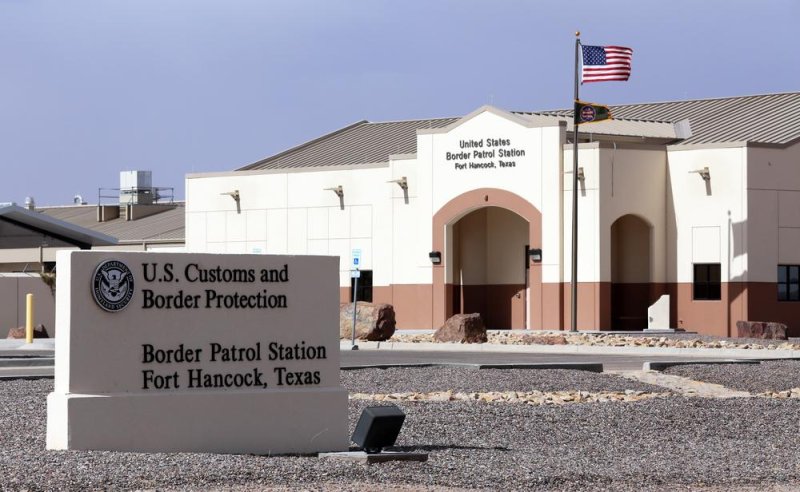A border patrol station in Fort Hancock, Texas. Photo USCBP
WASHINGTON, July 1 (UPI) -- A Homeland Security Advisory Council report published Tuesday by the Los Angeles Times says internal corruption threatens the nation's largest law enforcement agency.
Lethargic investigations of internal abuses and a vulnerability to systematic corruption by drug smugglers and other criminals are the basis for the Council's recommendation that U.S. Customs and Border Protection add approximately 350 criminal investigators to its current staff of 200 -- a 175% increase -- in order to help mitigate internal corruption and the use of unnecessary force against migrants.
The 29-page report, composed by the independent Council that reports to Homeland Security Secretary Jeh Johnson, attacks the agency's propensity to shoot unarmed or non-threatening individuals. It suggests that officials review their policies and prioritize the preservation of human life as hundreds of shootings by Border Patrol agents remain unaccounted for.
"The exercise of force must be consistent with the U.S. Constitution and laws and in compliance with sound policy based on a model of law enforcement best practices," reads the report. The recommendation accompanies the report's claim that arrests of border patrol officers far exceeds similar arrests of officers in other law enforcement agencies.
Criticism of Border Patrol agents' use of force accompanies a 2014 Los Angeles Times story where Border Patrol agents stepped in front of moving vehicles in order to justify shooting at their occupants, as well as another instance where they opened fire on individuals hurling rocks from across the Mexican border instead of simply moving out of the way.
A 2013 report also showed that 19 out of 67 agent-related shootings between January 2010 and October 2012 resulted in deaths.
Other operational suggestions involve the strict enforcement of visible name tags, which U.S. and Mexican critics say is a practice that is often ignored.
The Council that wrote the report was composed by eight law enforcement and national security experts led by Karen Tandy, former Drug Enforcement Administration chief, and William Bratton, the current New York City Police Commissioner.















